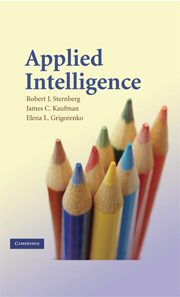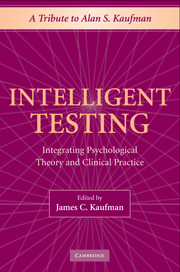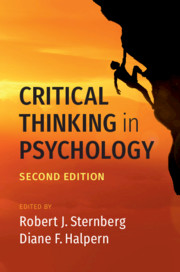Applied Intelligence
Typical texts develop students' knowledge while only minimally developing the general skills they will need for success in school and in life. The goal of our text is to assist students in acquiring the most important skills for facing the diverse challenges life presents. The book contains an overview of theories of intelligence, but itself is based in large part on a theory according to which individuals need creative skills to generate new ideas and a vision for the future, analytical skills to make sure that the vision is a good one, and practical skills to execute the ideas and to persuade other people of their value. The book considers key skills in problem solving, logical reasoning, analysis of arguments, knowledge acquisition, creative and practical thinking, automatizing information processing, and avoiding life traps that derail even the most intelligent among us.
- Based on solid, refereed, published empirical research
- Helps students not only improve their minds but also understand their minds
- Covers a wide range of intellectual skills, not just a narrow subset, i.e. analytical and practical skills as well as an overview of theory
Product details
April 2008Paperback
9780521711210
432 pages
253 × 177 × 24 mm
0.88kg
Temporarily unavailable - available from TBC
Table of Contents
- 1. Views of intelligence
- 2. The theory of successful human intelligence
- 3. Metacognition: thinking with metacomponents
- 4. Advanced problem-solving steps
- 5. Cognitive processing: performance components (I)
- 6. Cognitive processing: performance components (II)
- 7. Logical reasoning and analysis of arguments: performance components (III)
- 8. Inference and inferential fallacies
- 9. Knowledge-acquisition components
- 10. Coping with novelty
- 11. Deciding for creativity
- 12. Automatizing information processing
- 13. Practical intelligence
- 14. Why intelligent people fail (too often).







